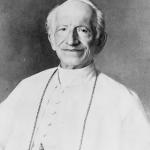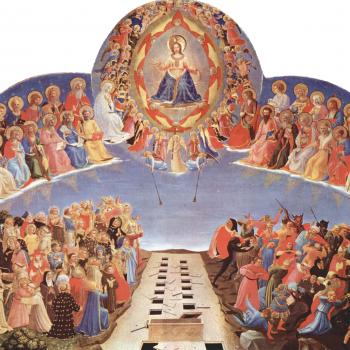By this time it’s not news to most that Gina Haspel, the Acting Director of the Central Intelligence Agency, and President Trump’s nominee for the permanent position, has a background that involved torturing people. What may be surprising, or should be surprising, is that there are, apparently, a significant number of people who have no problem with that, notably Mr. Trump himself, who tweeted,
“My highly respected nominee for CIA Director, Gina Haspel, has come under fire because she was too tough on Terrorists. Think of that, in these very dangerous times, we have the most qualified person, a woman, who Democrats want OUT because she is too tough on terror. Win Gina!” [1]
 But it isn’t only Democrats who have registered concern. Senator John McCain (R-Arizona) and Senator Rand Paul (R-Kentucky) have expressed their opposition to her appointment as well. Mr. McCain has pressed Ms. “Haspel, for information about her ties to the agency’s past use of harsh interrogation techniques, underscoring challenges she faces winning confirmation” [2], and Mr. Paul said through an aide that “Gina Haspel was instrumental in running a place where people were tortured. According to multiple published, undisputed accounts, she oversaw a black site and she further destroyed evidence of torture. This should preclude her from ever running the CIA.” [3]
But it isn’t only Democrats who have registered concern. Senator John McCain (R-Arizona) and Senator Rand Paul (R-Kentucky) have expressed their opposition to her appointment as well. Mr. McCain has pressed Ms. “Haspel, for information about her ties to the agency’s past use of harsh interrogation techniques, underscoring challenges she faces winning confirmation” [2], and Mr. Paul said through an aide that “Gina Haspel was instrumental in running a place where people were tortured. According to multiple published, undisputed accounts, she oversaw a black site and she further destroyed evidence of torture. This should preclude her from ever running the CIA.” [3]
Ms. Haspel was unrepentant at her confirmation hearing, specifically defending the CIA’s torture of terrorism suspects, though she did say that such an interrogation program would not be restarted under her watch. [4] Still, she declined to say unequivocally that the torture was immoral. [5]
But notwithstanding Ms. Haspel’s seeming uncertainty on the subject, there should be no doubt on the part of Catholics as to the morality of torture. “Torture which uses physical or moral violence to extract confessions, punish the guilty, frighten opponents, or satisfy hatred is contrary to respect for the person and for human dignity.” (Catechism of the Catholic Church, §2297) [6] Simple as that.
For those of a Utilitarian bent who fear that a blanket prohibition on torture might deprive us of a valuable weapon against terrorism, Scientific American related a story last year showing how ineffective a tool torture really is in an article by Michael Shermer:
 “As recounted by author and journalist Daniel P. Mannix, during the European witch craze the Duke of Brunswick in Germany invited two Jesuit scholars to oversee the Inquisition’s use of torture to extract information from accused witches. ‘The Inquisitors are doing their duty. They are arresting only people who have been implicated by the confession of other witches,’ the Jesuits reported. The duke was skeptical. Suspecting that people will say anything to stop the pain, he invited the Jesuits to join him at the local dungeon to witness a woman being stretched on a rack. ‘Now, woman, you are a confessed witch,’ he began. ‘I suspect these two men of being warlocks. What do you say? Another turn of the rack, executioners.’ The Jesuits couldn’t believe what they heard next. ‘No, no!’ the woman groaned. ‘You are quite right. I have often seen them at the Sabbat. They can turn themselves into goats, wolves and other animals…. Several witches have had children by them. One woman even had eight children whom these men fathered. The children had heads like toads and legs like spiders.’ Turning to the flabbergasted Jesuits, the duke inquired, ‘Shall I put you to the torture until you confess?’” [7]
“As recounted by author and journalist Daniel P. Mannix, during the European witch craze the Duke of Brunswick in Germany invited two Jesuit scholars to oversee the Inquisition’s use of torture to extract information from accused witches. ‘The Inquisitors are doing their duty. They are arresting only people who have been implicated by the confession of other witches,’ the Jesuits reported. The duke was skeptical. Suspecting that people will say anything to stop the pain, he invited the Jesuits to join him at the local dungeon to witness a woman being stretched on a rack. ‘Now, woman, you are a confessed witch,’ he began. ‘I suspect these two men of being warlocks. What do you say? Another turn of the rack, executioners.’ The Jesuits couldn’t believe what they heard next. ‘No, no!’ the woman groaned. ‘You are quite right. I have often seen them at the Sabbat. They can turn themselves into goats, wolves and other animals…. Several witches have had children by them. One woman even had eight children whom these men fathered. The children had heads like toads and legs like spiders.’ Turning to the flabbergasted Jesuits, the duke inquired, ‘Shall I put you to the torture until you confess?’” [7]
The article goes on to say that one of the Jesuits involved later wrote a book that “played a role in bringing about the end of the witch mania and demonstrating why torture as a tool to obtain useful information doesn’t work.” And with this assessment even Gina Haspel agrees, testifying during her hearing, “I don’t believe that torture works.” [8]
So to ask if torture can ever be moral is to ask whether inflicting intense pain on a human being for no reason can ever be moral. The answer to that is obvious to anyone with mental clarity, let alone those who are, or ought to be, informed by Catholic teaching.
The icon of St. Joseph the Worker is by Daniel Nichols.
Please go like Christian Democracy on Facebook here. Join the discussion on Catholic social teaching here.
















